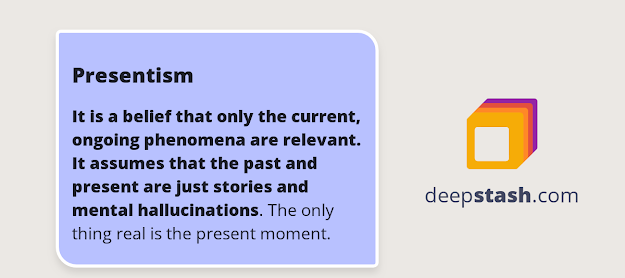Most folks are of the opinion that studying philosophy, as a subject, is a waste of time. And it is true that studying philosophy at university is not always a good idea when comes to career prospects. This specifically applies when the candidate is contemplating a career relating to the subject matter. What I have stated is valid to a certain extent, but higher learning should not be construed as a vehicle for cramming minds with a multitude of information. Higher learning, by its very nature, is not a bucket full of 'rote learning'. Of course, there are facts and concepts that must be mastered. However, it is how we utilise this base knowledge to expand our learning that defines and refines the intellect. It is about developing a critical mindset that not only should be utilised in future employment, but also in other areas of existence. I'm not implying that higher education should be directed at churning out serried rows/ranks of 'Mr Spocks'. And it is insane to suggest that we go through life logically analysing all life's decisions and situations. However, important actions that seriously impact our lives require a measured, rational approach. Back to the point (perhaps): liberal topics, in general, suffer the same opprobrium as ascribed to philosophy. Sadly, although we may be enriched by studying such subjects, bills still need to be paid and the rank lure of economics requires employment commensurate with a perceived lifestyle. A Bohemian lifestyle is not for all. Nuff said.
I've strayed off the path, concerning the title, in an uncharacteristic digression. Just to wrap up: if you are so blessed to attend an institution of higher learning then pick a degree course compatible with the real world. Having an interest in philosophy, psychology or literature is fine. These topics make fine hobbies and diversions.
The title of this post relates to alternative niche philosophies not well known to folks outside the rarified world of academia. So without further rambling, verbiage and prolixity (and aplomb), let's delve into the dark, dank world of niche philosophy........
The two philosophic schools of thought, Presentism & Externalism, are not particularly well known to lay folk. These two 'spheres of thought' are in direct contrast to each other and each has an interesting take on the concept of time. These two philosophies represent a true idealised dichotomy and to my mind, 'Externalism' is the more interesting of the two. The two topics under consideration, (Externalism, at a later date) and as presented here, are by necessity dealt with in a highly perfunctory manner. The subject matter is not so much drawn in outline, tis more of a fine line, lightly traced, in a pastel shade, with crayon.
Presentism
In its simplest form, presentism denies the existence of the past and the future. Only the present is real. Of course, by necessity, the philosophy has to introduce a 'Theory of Time' to bolster its core thesis. Philosophers, both ancient and modern have struggled with 'the concept of time'. 'Time', on the face of it seems a relatively simple notion to vocalise. However, 'Time' is an elusive beast that lurks within the deep recesses of the mind and remains concealed and fleetingly regarded. Indeed, the concept of 'Time' has intrigued and occupied the greatest minds for over two millennia. In truth, the 'the passage of time', as an abstraction, is immensely complex and therein lies a temporal trap for those foolhardy enough to venture there. Then of course along comes Einstein with his unintuitive theories creating a novel paradigm where time becomes inexplicably linked with space, giving rise to 'Spacetime' Arse.
Presentism has an association with Eastern philosophical thought, especially Buddhism. On the whole, I'm not a fan of Eastern thought systems. I find them a little too esoteric and unintelligible. For instance, consider the quote from Fyodor Shcherbatskoy, a notable modern Buddhist philosopher: "Everything past is unreal, everything future is unreal, everything imagined, absent, mental... is unreal. Ultimately, real is only the present moment of physical efficiency". A little too wordy and florid for my taste.
How are we to imagine past events and plan for the future if such a philosophy is valid? While it is acceptable to consider that future events don't exist because they haven't occurred yet, it seems a strain to extend this reasoning to past events. Past events, by definition, lie somewhere on the time continuum. Events from the past impinge on the present and by a chain of causal links have a direct bearing on the present and will continue to influence a potential putative future. Consider this: Julius Caesar lived just over 2,000 years ago. The evidence for his past existence is overwhelming and from multiple sources. His actions in Western Europe, mainly through the exercise of arms, have had a direct impact on the development of Western culture, language and history. His legacy has left an indelible imprint on our present. Perhaps Presentism is only meant to be understood in a contextual, semantic manner. Thus, the statement, 'Caesar exists' has meaning only if we choose a specific time when he was alive. Caesar existed in the past of 50 BC but it is meaningless to consider that he exists in our present. In a literal sense, he doesn't exist in our present. But it is undeniable that his past existence, in a very tangible sense, has impacted upon the present and the consequences of his deeds will continue to be projected unto the future. I don't see how this philosophic system can counter this criticism. There are more technical and complex objections. If you can find the time, and inclination, consider 'Truth Maker Theory'.
I was hoping to consider the philosophy of Externalism within this post. However, I have waxed lyrical and prattled on, unfettered. Thusly, my pontifications, on this topic will have to be postponed until a future date. Ain't dat the sad truth.



